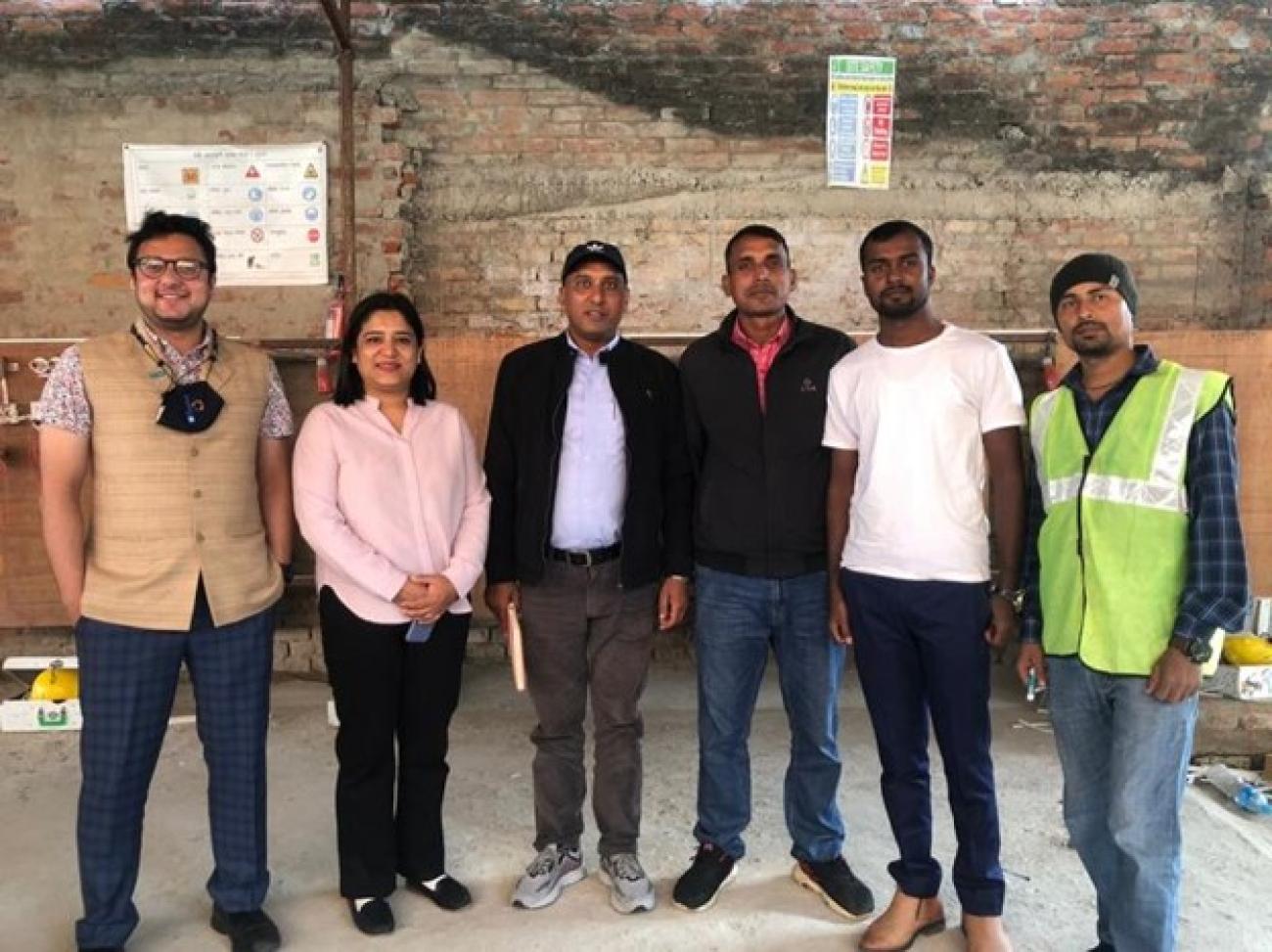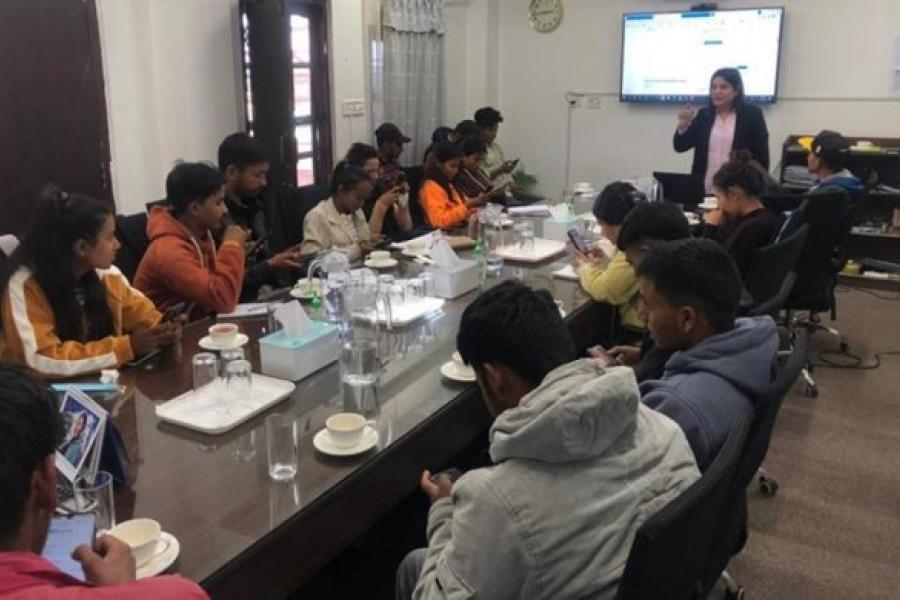The power of connection: checking on members of the UNV family in Nepal

As I embarked on a tour across the beautiful provinces of Nepal, a question lingered in my mind: Why is it essential to meet and connect with UN Volunteers?
The answer to this question slowly unraveled itself as I travelled through six provinces and had the privilege of meeting nine incredible members of the UNV family along the way.
The objective was to live up to the wellbeing of UN Volunteers stationed with UN partners across the country. The outcome was informative and inspiring, in every sense of the word.
My journey commenced in Sudurpaschim, the farthest province from the capital, where I had the opportunity to meet fellow UN Volunteers with the United Nations Capital Development Fund (UNCDF) and the United Nations Development Programme (UNDP). These remarkable young individuals were UN University Volunteers, dedicating their efforts to areas such as Infrastructure Asset Management and Information Management at the local and municipal levels.
Working with the local government, especially as a young person, can often be challenging. The pace of work may be slow, and there might be limited space for creativity. However, the young minds I encountered in Sudurpaschim were making their presence felt in a positive way, showcasing their potential at every given opportunity.
Continuing my journey, I arrived in Dharan (Province 1) and Dhulikhel Sub-Metropolitan City (Bagmati province). Here, I had the pleasure of meeting UN Volunteers from UNCDF who were also engaged in Infrastructure Asset Management. This field is not easily comprehensible to everyone, which makes the work of UN Volunteers all the more significant. Their efforts are widely acknowledged by municipal focal points, bridging the knowledge gap and facilitating progress.
In the provinces of Lumbini and Madhesh, I encountered UN Volunteers contributing in the realm of Technical and Vocational Education Training (TVET).
Nepal, like many other countries, was severely affected by the COVID-19 pandemic. The support provided by UN Volunteers in offering skills training played a crucial role in helping Nepali migrants who went to India and Gulf countries for employment rebuild their lives. Support to knowledge and lifelong learning skills, facilitated by UN Volunteers, became instrumental in ensuring equal employment opportunities for these individuals seeking to start anew.
My final stop was Karnali, a province known for having the lowest Human Development Index in the country. Here, I had the privilege of meeting a fellow UN Volunteer serving as an Information Management Associate in Surkhet. In her role, she served as the point of contact for sensitive issues, where confidentiality and discretion were of utmost importance when dealing with people.
The positive feedback I received from these UN Volunteers regarding their wellbeing was truly heartening. They expressed happiness in working closely with communities and grassroots organizations, as it gave them a profound sense of satisfaction and purpose. Their selfless dedication embodied the true spirit of volunteerism, making a meaningful impact without expecting anything in return.
While there was no significant negative feedback, during our mission, a few UN Volunteers did express concerns regarding coordination with local government counterparts. They felt that they did not receive sufficient time and support, hindering the efficiency of their collaborative efforts. To address this issue, we engaged in conversations with both the government counterparts and the relevant host entities, striving to foster a more efficient and seamless working relationship for us to deliver as one.
Undoubtedly, UN Volunteers serving in remote areas face a number of challenges. The geographical terrain, with Nepal's diverse mountains and hills, can complicate the movement of volunteers. Yet, there are greater obstacles to overcome.
One significant challenge is managing the expectations of community members in remote areas. The term "UN" holds great significance for them, and when a UN Volunteer visits their community for research or enumeration purposes, they often expect financial resources or assistance in building homes, roads and more. Although it may be challenging for volunteers to manage these expectations, the potential for UN collaboration and delivery is great.
Despite these challenges, the dedication and resilience of UN Volunteers remain unwavering as they strive to make a positive impact in the lives of those they serve.
Inspiration in action = working with local communities to bring about a change and make a constructive impact in the daily lives of others. This is the sum of answers I got at the end of my travel.




